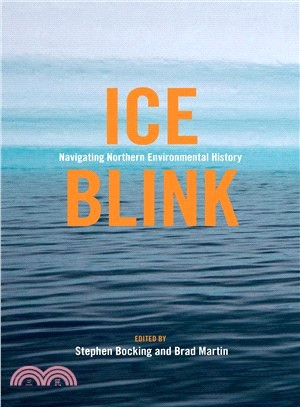Ice Blink ─ Navigating Northern Environmental History
商品資訊
ISBN13:9781552388549
出版社:Univ of North Carolina Pr
作者:Stephen J. Bocking (EDT); Brad Martin (EDT)
出版日:2016/10/01
裝訂/頁數:平裝/496頁
規格:22.9cm*22.9cm*15.2cm (高/寬/厚)
商品簡介
相關商品
商品簡介
Northern Canada's distinctive landscapes, its complex social relations and the contested place of the North in contemporary political, military, scientific and economic affairs have fueled recent scholarly discussion. At the same time, both the media and the wider public have shown increasing interest in the region. This timely volume extends our understanding of the environmental history of northern Canada – clarifying both its practice and promise, and providing critical perspectives on current public debates.
Ice Blink also provides opportunities to consider critical issues in other disciplines and geographic contexts. Contributors also examine whether distinctive approaches to environmental history are required when studying the Canadian North, and to consider a range of broader questions. What, if anything, sets the study of environmental history in particular regions apart from its study elsewhere? Do environmental historians require regionally-specific research practices? How can research methods borrowed from disciplines in the sciences and social sciences enrich the field of environmental history? How can the history of regions be placed most effectively within transnational and circumpolar contexts? How relevant are historical approaches to contemporary environmental issues?
Scholars from universities in Canada, the United States and Britain, as well as government researchers and northern residents, contribute to this examination of the relevance of historical study for contemporary arctic and sub-arctic issues, especially environmental challenges, security and sovereignty, indigenous politics and the place of science in northern affairs.
By asking such questions, the volume offers lessons about the general practice of environmental history and engages an international body of scholarship that addresses the value of regional and interdisciplinary approaches. Crucially, however, it makes a distinctive contribution to the field
Ice Blink also provides opportunities to consider critical issues in other disciplines and geographic contexts. Contributors also examine whether distinctive approaches to environmental history are required when studying the Canadian North, and to consider a range of broader questions. What, if anything, sets the study of environmental history in particular regions apart from its study elsewhere? Do environmental historians require regionally-specific research practices? How can research methods borrowed from disciplines in the sciences and social sciences enrich the field of environmental history? How can the history of regions be placed most effectively within transnational and circumpolar contexts? How relevant are historical approaches to contemporary environmental issues?
Scholars from universities in Canada, the United States and Britain, as well as government researchers and northern residents, contribute to this examination of the relevance of historical study for contemporary arctic and sub-arctic issues, especially environmental challenges, security and sovereignty, indigenous politics and the place of science in northern affairs.
By asking such questions, the volume offers lessons about the general practice of environmental history and engages an international body of scholarship that addresses the value of regional and interdisciplinary approaches. Crucially, however, it makes a distinctive contribution to the field



